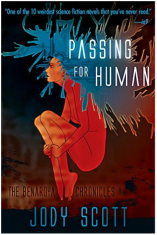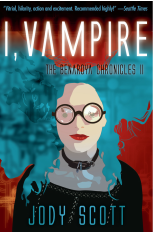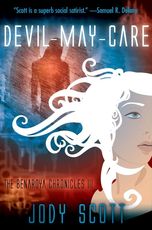|
When I was growing up in California, going to Disneyland was a part of life. Every several years my mom, sister and I would pack up the station wagon, head south on the 101, then with high excitement, buy our coupon books at the gate. During one visit my mother and sister wanted to go to the Enchanted Tiki Room but I wanted to visit the Swiss Family Treehouse, so we split up. My attraction sucked. Mom and sis praised the Tiki Room highly and I wished I'd gone to it instead. It was many years before I was at Disneyland again and finally got to go to the Tiki Room; I expected an animatronic paradise of lush jungle and exotic singing birds. Imagine my disappointment when instead it consisted of bleacher seats in the round and a pantomime of a corny nightclub act with birds. Sometimes reading a book is like the Tiki Room. This month's Censorable Ideas is about 2 such novels, Orlando by Virginia Woolf Riding the Centipede by John Claude Smith. 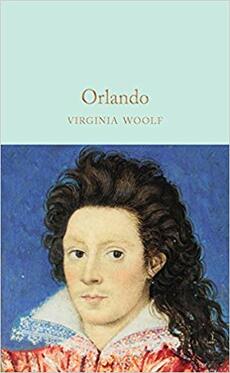 Orlando is a novel praised in breathless whispers as "groundbreaking," and it's true, the notion of fluid gender roles would've been something new and shocking for its day, and the fact that the protagonist changes sex in the novel might be taken as prima facie evidence of challenging social gender-role orthodoxy, but Orlando the titular character, as first a boy and then a man and then a woman, largely conforms to the social expectations of each of these identities, and so I think Orlando the novel gets more credit than it earns in this regard. Maybe, like with the Tiki Room, I'd read so much praise of it before actually reading the novel, that it became more in my imagination than it could possibly be, and disappointment was inevitable, but my overarching impression was this is a novel that marries the worst instincts of chick-lit (albeit at a far superior level of writing) with the effetest of the effeteness of upper class idleness. "Oh I'd love to be a writer!" Orlando cries for 400 freaking years, like a teenager writing in her diary, and, despite his/her four centuries of experiences, learns nothing, grows not a wit as a character, remains the same overly-sensitive, narcissistic juvenile throughout. Perhaps it was Woolf's intention to show that no amount of life experience can overcome the debilitating effects of too much wealth combined with too little purpose, though I doubt it, but that is certainly my take-away theme. Now as a very long love letter to Vita Sackville-West, which Orlando is widely considered to be, it is astonishing; there is much humor to be enjoyed, and Woolf is undoubtedly a master of her craft- her prim, precious, introverted prose is perfectly matched to the subject matter, but I find the character of Orlando to be too useless a waste of space to be able to like the novel. 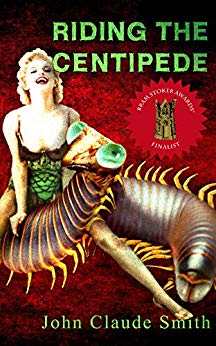 Riding the Centipede presents itself as transgressive fiction, "a genre of literature which focuses on characters who feel confined by the norms and expectations of society and who break free of those confines in unusual or illicit ways," but what it ultimately delivers is something quite different. "Riding the Centipede," we are told by Marlon, longtime junkie and denizen of the underworld, is the ultimate drug-fueled experience. Created by a mythologized William S. Burroughs and offered just once a year exclusively to one recipient, Marlon has been chosen. Now all he has to do is survive. Centipede is the story of his journey, and his sister's parallel quest to find and rescue him, assisted by a world-weary P.I. There is of course also an evil "Ubermensch" antagonist, and an assortment of unsavory characters whose debased wishes Marlon must fulfill in order to receive the drug to take him to the next level of his ride. The thing about transgressive fiction that makes it interesting and valuable, is that, at its best, it leads us to other avenues of contemplating reality, to different ways of thinking or experiencing that transgress society's paradigm in order to gain a bigger, freer point of view. Not so with Riding the Centipede. We get all the trappings of TF, but none of the payoff. There is, ultimately, no ultimate experience; we never get to take that ride and the characters who seek it... well it ends badly for them. The characters for whom it does not end badly find happiness in a conventional life that conforms to society's expectations. Smith has undoubted talent, but this novel reminds me of the pulp lesbian and gay fiction of the 1950's and 60's: it was OK for characters to indulge their "deviance" so long as by novel's end they converted, died or were punished. The characters in Centipede likewise indulge their deviance but in the end, convention's imperatives are upheld. I felt that in the back matter of this ebook, there could've appropriately been an animated GIF of Nancy Reagan holding a sign proclaiming, "Just Say No." Which is what I say about Riding the Centipede. -Mary Whealen read more reviews
0 Comments
For those who may be new to Jody's blog, some highlights to start you off. Please enjoy exploring all the content here at Censorable Ideas! And for you old hands who've been around since the beginning, consider this a "Golden Oldies" list.
"Fantastical and yet mundane, Baron is a celebration of the individual in the sense we think of that, as sovereign of one's own life. Highly recommended." Headhunters from Outer Space by Bret McCormick "Humor, nostalgia, metaphysical philosophy, oddball characters, Headhunters From Outer Space is thoroughly enjoyable." The Exit Man by Greg Levin "Protagonist and his partner/girlfriend and their terminally ill clients are the ultimate DIYers; doing it for themselves, for each other and for the community at large, and we lucky readers get to tag along!" -Mary Whealen Remember way back in 2003 when George Bush Jr, not to be outdone by Bushy Sr, invaded Iraq with a bunch of trumped-up lies to get the 'Murican public salivating and flag-waving in support of "our boys?" And then we patriotically bombed a lot of civilians, and a few actual soldiers, while looting the country of its wealth and antiquities, before destroying everything in sight and leaving rubble, chaos and hatred of America in our wake? And then for even more fun we threw in a side gig over in Afghanistan, just to make sure the chaos and instability would be good and widespread, and lasting (absolutely FAB for industrial-criminal-military-kleptocratic business don't you know)? Of course you remember! After all it's still going on today, stronger than ever. For your reading pleasure, or perhaps for your despair at how little things change, is a piece written by Jody during the 2nd Iraq war. Oh, and to all you good, god-fearin', flag-wavin', muslim-hatin' citizens, a word of advice: Whenever you go to war with some country, a decade later there will be scads of folks from there coming here, so never, ever go to war against someone you don't want moving in next door.  ANTHRAX We're all very scared about the persistent threat of Anthrax in our little town of Shoreline, WA., and today I went down to be fitted for my very first gas mask. It was quite difficult; my right hand is in a cast from over-enthusiastic flag waving but I finally managed to try on a mask that fits (see picture) and also brought a nice one home for my neighbor, Miranda Nussbaum (pronounced noose-bomb). Was she grateful? Not hardly! She right away began croaking about things I don't want to hear, like, "Don't these dummies know that George I killed one million Iraqi children and now George II is going for two mil?" "Now, Miranda," I said soothingly. I brought her her CARE dinner and we were dining together on her tiny balcony that overlooks the Shoreline Courthouse Building. We were watching the Mayor and his staff going in and out with petitions to escalate the war in Afghanistan in hopes of ending the depression in the U.S. (oops! I didn't mean to say the D-word; it just slipped out). But Miranda wouldn't be soothed. She gulped her chicken soup greedily, saying, "Don't they know that when you kill innocent people, no matter how sweetly your government presents it to you, you are still subject to the laws of karma?" "Now, Miranda!" I reproved, "what would you know about the laws of karma, you're a Jewish lady!" Then I laughed brightly to take the sting off my words. "And another thing," she growled. "They interviewed a lot of psychiatrists on TV and most of them said: 'The men who destroyed those buildings were NOT psychotic.' Are those shrinks nuts? What is their definition of the word 'psychotic'? Mine is, any person who wants to do harm to others chronically. But those dolts--they can't define the words they use and they have no technology for curing anything at all; their cure ratio is exactly the same as for witch doctors, did you know that, Smarty-Pants?" (That's what Miranda calls me when I seem to be calmer and wiser than she is, which she hates.) "And they can haul you away and give you shock treatments or a lobotomy and destroy your brain in a heartbeat and the Government licenses them to do this--and they don't know a psycho from a turnip farmer, were you aware of that? I'm with Sam Goldwyn! Sam said 'Anyone who goes to a psychiatrist should have his head examined.' What's for dessert?" "No dessert till you finish your haddock cutlets," I reproved, chewing. We ate in silence for a few minutes. Then Miranda said, "And they brag about how much they pray. Do you have any idea what God REALLY thinks of such hypocrites? Why, she told me--" "Ready for your blueberry compote?" I called gaily on my way to the tiny kitchen. It's Miranda's favorite and serving it is the surest way I know to shut her big, blabbering mouth. We went to high school together you know, and the last thing she said before I left was: "This war stinks, do they think they are 'punishing' the men who blew up those buildings and who are safely dead, by raining bombs day and night upon innocent women and children and animals and pets? Think they give a fuck how many women we kill? Why those Fundamentalist goons hate and despise women, they are not only misogynists (like most people in this country when you scratch their surface) but are absolute gynophobes! Gynophobes? Look it up in your Funk & Wagnalls. It means they LOATHE women. They WANT women dead. We're doing them a favor by bombing women-- Oh, you're leaving now? Thanks for the dinner, sweetie, see you tomorrow, this war stinks but I'm forced to agree with you that from my perspective up here on my tiny balcony, high school was worse." -Jody Scott 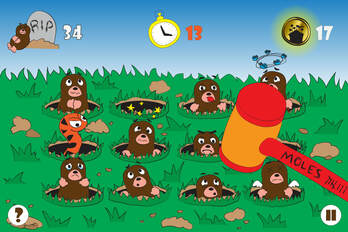 Transgressive Fiction is "a genre of literature that focuses on characters that feel confined by the norms and expectations of society and who break free of those confines in unusual or illicit ways. Because they are rebelling against the basic norms of society, protagonists of Transgressive Fiction may seem mentally ill, anti-social or nihilistic." (Wikipedia) From this definition, we understand that author's such as Burroughs, Shelby, Genet, Miller, Ginsberg belong to the genre, and inculcated as we all are from birth, it is understandable that what we easily recognize as "transgressive" is a kind of game of whack-a-mole, wherein our hero rebels poke their rebellious heads up only to, sooner or later, have them whacked back down by society. It's a game the house always wins because it sets the parameters. But what if we step beyond easy recognition? What might we find there to inform us about literature and about life? Last month I reviewed Never Anyone But You (discovered on the terrific site transgressivefiction) and concluded, "It is an interesting choice to include in the "transgressive fiction" tent. It contains little of the usual canon; this is not a story of rebellion via drugs, criminality, nihilism or self-destructive decadence. Claude and Marcel defy oppressive norms by creating a happy and long life together, by not internalizing the normative paradigm but designing and defining their own." I think we take too narrow a view of transgression when we see only "drugs, sexual activity, violence, incest, pedophilia, and crime," to quote goodreads. Not that there's anything wrong with those things in fiction of course, but what I mean is this: if the bloated center of a bell curve represents society ("everywhere in conspiracy against the manhood of every one of its members," as Emerson tells us), then transgression extends in many directions. It is these heretofore unrecognized directions, and the fiction that explores them, that is the subject of this month's Censorable Ideas. From The Atlantic Monthly: "Transgressional fiction shares similarities with splatterpunk, noir and erotic fiction in its willingness to portray forbidden behaviors and shock readers. But it differs in that protagonists often pursue means to better themselves and their surroundings—albeit unusual and extreme ones. Much transgressional fiction deals with searches for self-identity, inner peace and/or personal freedom. Unbound by usual restrictions of taste and literary convention, its proponents claim that transgressional fiction is capable of pungent social commentary." This description begins to take us somewhere interesting. Can fiction be transgressive in a positive direction? I offer in the affirmative the following examples: Don Quixote by Miguel de Cervantes, The Baron in the Trees by Italo Calvino, The Benaroya Chronicles trilogy by Jody Scott, Headhunters from Outer Space by Bret McCormick Never Anyone But You by Rupert Thomson The characters in these novels subvert & disobey the imperatives of their society, not in the easily recognized transgressional fiction modality, but critically, to my point here, for the same reasons. These protagonists SEE the normative paradigm, with all the banal hypocrisies and suppressions thereof, but reject it by flourishing in a paradigm of their own making. "Resistance is futile," warn the species-gobbling Borg in Star Trek, and we've all heard the truism, "what you resist, persists," so perhaps they make a good point. Perhaps it's a problem with our understanding of transgression as synonymous with rebellion. When we look to the dictionary definition of rebellion ("An act of violent or open resistance to an established government or ruler. The action or process of resisting authority, control, or convention"), we begin to see how the game of whack-a-mole rebellion cedes society victory from the start. Maybe what's needed is a broader concept of transgression, something that doesn't accede that society's paradigm is the benchmark, against which we can only rebel. Like Claude and Marcel in Never, Scott's characters Benaroya and Sterling O'Blivion, Calvino's protagonist in Baron, McCormick's Headhunters and Don Quixote are examples of "transgressors" who defy societal norms by the more evolutionary and difficult task of not internalizing the dominant paradigm. Easier said than done (but not impossible) in life, of course, but these are fictional heroes who transcend the "games condition" of poking their heads up for society to take a whack at.
As imagined by these and other authors, characters "who feel confined by the norms and expectations of society and who break free of those confines" in positive directions can and do make critical points about society, may "portray forbidden behaviors and shock readers," but most importantly these protagonists "pursue means to better themselves and their surroundings." They give us permission and inspiration to imagine better, bigger, richer, freer than the world would have us believe is possible. And what is more transgressive than that? -Mary Whealen This month's titles come courtesy of transgressivefiction.info, a great place to discover new and interesting authors. THE EXIT MAN by Greg Levin |
Get blog via email or reader:Categories
All
Archives
June 2022
|


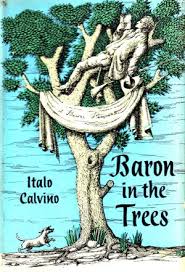
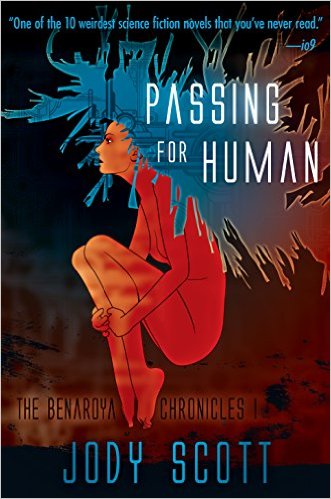
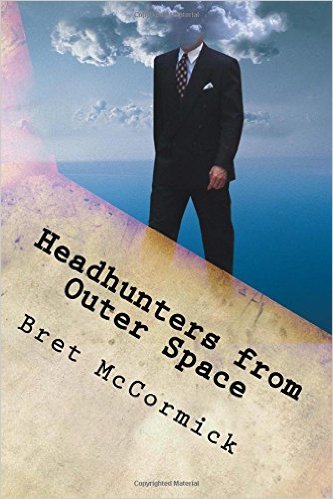
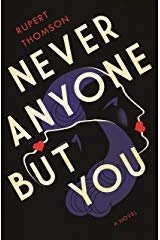
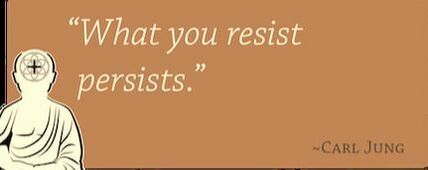
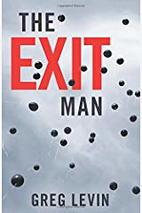
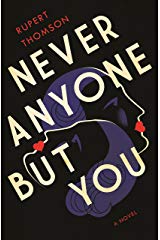

 RSS Feed
RSS Feed

